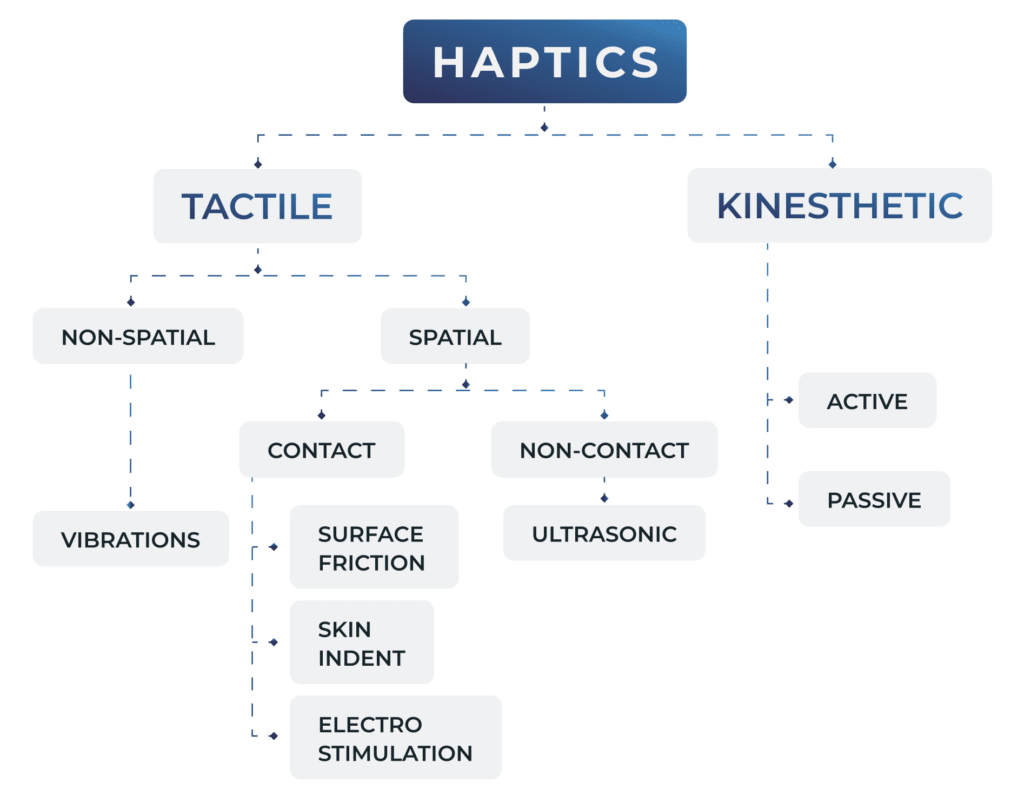Virtual reality is becoming an increasingly popular tool in many different industries. However, the healthcare sector has yet to explore its uses fully. Despite this, several potential applications for VR in healthcare could revolutionise the way training and treatments are delivered.
In a study of the applications of virtual reality technology for medical teaching, researchers saw higher accuracy in medical practice from people trained through VR in 87% of cases. This article discusses VR gloves and explores how they could improve healthcare outcomes and revolutionise the industry
An Overview of the Technology
VR gloves, such as the SenseGlove Nova, are wearable devices that allow the wearer to interact with simulated environments in a natural way, using hands instead of controllers. Force feedback technology can replicate the feeling of an object’s density and size by applying resistance through magnetic fiction brakes built into the glove.
The 20 Newtons of resistance within 10 ms of the SenseGlove Nova make size and density in virtual reality feel as close to real life as possible. This makes SenseGlove Nova ideal for VR training, including clinical simulation.
On the other hand, vibrotactile feedback uses vibrations to create realistic sensations in virtual reality experiences. By providing a physical response when a user touches an object, it can help them to feel an interaction cue and impacts from the object.
Advances in Medical Training
Virtual reality technology is a relatively new method for training professionals and students of various medical sciences. However, it proves to be promising. VR gloves empower students and learners to better connect to the tactile feeling of their clinical simulation.
Haptic gloves are highly useful for medical training. VR gloves can help students get used to the size and feel of different tools, medical equipment, and even organs. As a result, students who use VR gloves will be better prepared to handle the challenges of real-life medical situations.
Studies have shown that using VR gloves in medical training can improve learning outcomes, such as task performance and knowledge retention. By providing a more immersive experience, clinicians can better understand patients’ conditions and perspectives.
VR gloves are thus a valuable tool that can help to improve medical training and prepare healthcare professionals for real-world clinical and hospital settings.
Patient Recovery and Rehabilitation
VR gloves have also been shown to be an effective tool in the rehabilitation and recovery of patients with various conditions. They allow patients to interact with virtual environments naturally and intuitively, providing them with a sense of control and agency during their rehabilitation.
There is a growing body of research that suggests VR gloves can be effective in helping patients to recover from stroke, spinal cord injury, and other neurological conditions. In many cases, researchers found using VR gloves improved patients’ functional ability and quality of life and reduced their hospital stay.
In the article by Medical Delta, for example, VR gloves like SenseGlove are full of pressure points that patients find helpful when performing hand rehabilitation exercises. People who are recovering from hand trauma will require a lot of practice until they can fully recover and use their actual hands again. VR gloves allow them to perform tasks and pursue therapeutic exercises.
Haptic Force-Feedback for Rehabilitation
VR gloves help facilitate the rehabilitation of patients who are recovering from brain damage. The patients of Rijndam rehabilitation centre have tried using SenseGlove to practice movements essential to their recovery. For example, the patients were able to feel the difference between an egg and a sugar cube, or the softness of a sponge and the solidness of a teacup.
By undergoing therapy and exercising in VR, patients can ease themselves into day-to-day tasks even without the permanent supervision of a therapist.
SenseGlove also partnered with District XR to accelerate the recovery of patients from physical injuries. Using VR and haptic gloves, the goal was to speed up the recovery process and restore motor function of the hands. Haptic gloves provide the right level of accuracy and speed of device tracking in virtual reality because of advanced sensors on the fingers. This allows the patient to interact with the smallest objects and fully immerses them in the experience.
Raising Awareness and Building Empathy
SenseGlove, in partnership with Procter & Gamble, created a simulation where people who do not suffer from nerve damage can momentarily experience the symptoms associated with the condition. The SenseGlove Nova mimics nerve damage symptoms so that general practitioners can diagnose them earlier during their medical practice.
The goal was to raise awareness about nerve damage and gain sympathy and support from general practitioners and healthy people. It was also an effective and innovative way to market the Procter & Gamble brand.
Request a VR Haptic Kit
At SenseGlove, we are dedicated to making scalable haptic VR training the new norm—especially for the healthcare field. VR gloves could revolutionise how students are trained and how medical services are delivered.
There is evidence that VR gloves can be helpful in both training and rehabilitation settings. It will be interesting to see how this technology develops over time and whether it has become more widely adopted.
Learn how VR gloves could further benefit your company or organization. Contact us and request a VR haptic kit and to become part of our growing list of clients.


